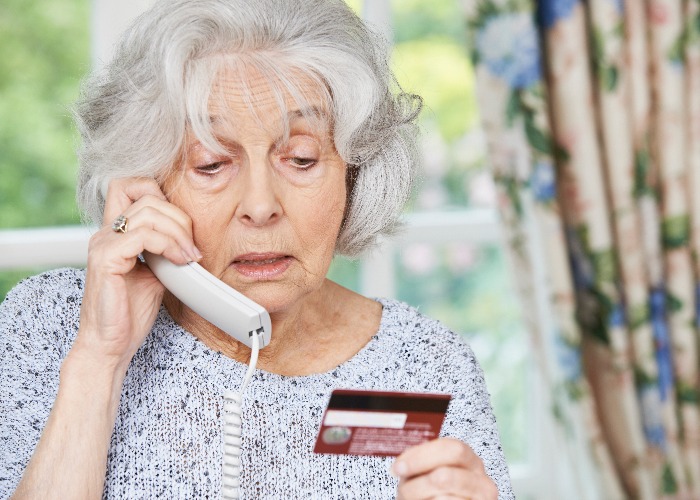HMRC tax return deadline phone scam: don’t be caught out

Listen to this phone call by crooks preying on stressed freelancers and small business owners.
It’s almost inevitable that you’ve come across scam emails and texts, but what about a phone call?
The team at online security experts Comparitech managed to record a fraudulent – but worryingly convincing – automated call purporting to be from HMRC.
The timing is likely to be related to the deadline for filing Self Assessment tax returns online, which falls on the 31 January.
Have a listen, but please do not call the number mentioned in the phone call:
Anyone getting this phone call out of the blue would be justified in feeling concerned.
The caller, a certain ‘Officer Denise Grey’ warns that the “the issue at hand is extremely time sensitive” and “if you do not call us back or we do not hear from your solicitors, either, then get ready to face the legal consequences.”
The call tells the listener to call a number, 02086388432, which Comparitech tried calling but received no response.
Usually, these calls will ask you for your personal details, such as bank and credit card numbers, which are then used to access your account or are sold to other crooks.
Somewhat bizarrely, the call ends “goodbye and take care”.
The scariest online scams and hacks of 2018
How to spot this is a scam
As we emphasise with all phone scams, no genuine call from a government body or bank would ask you to take immediate action or reveal confidential details on the phone.
If they do, put the phone down immediately.
You can then check the number: when we searched ‘02086388432’ we found it mentioned in relation to scams:
Hi Abhi, we would never threaten legal action in this manner, or call you without verifying our own identity first. You can report bogus calls to the police using this link: https://t.co/b18jjyp4tv. Henryk
— HMRC Customer Support (@HMRCcustomers) December 17, 2018
Try sites such as who-called.co.uk, which recorded 82 comments linked to the 02086388432 number, almost all warning it was a fake.
Then report the phone call to HMRC itself by email at phishing@hmrc.gsi.gov.uk and include the date of the call, phone number used and content of the call.
If you’ve lost money as a result of this call, get in contact with the police’s Action Fraud organisation.
Scams: how spoofing, Twitter clones, fake green padlocks and gift card 'fines' could catch you out
Tax-related scams
Unfortunately, tax is a key target from scammers, as victims are often caught off balance by calls, emails and texts threatening heavy penalties.
It doesn’t help that HMRC’s actual staff have been accused of acting aggressively in their genuine communications, as was alleged recently by MPs.
If you’ve got to do a tax return this year, we’ve put together an article of tips and advice. If you need more help, here are some safe ways to contact HMRC.
Be particularly suspicious about any communications related to tax returns. As this example shows, such scams can be tough to spot:
HMRC have repeatedly stated that they only ever send communications regarding tax returns by post, never by email or text.
Comments
Be the first to comment
Do you want to comment on this article? You need to be signed in for this feature